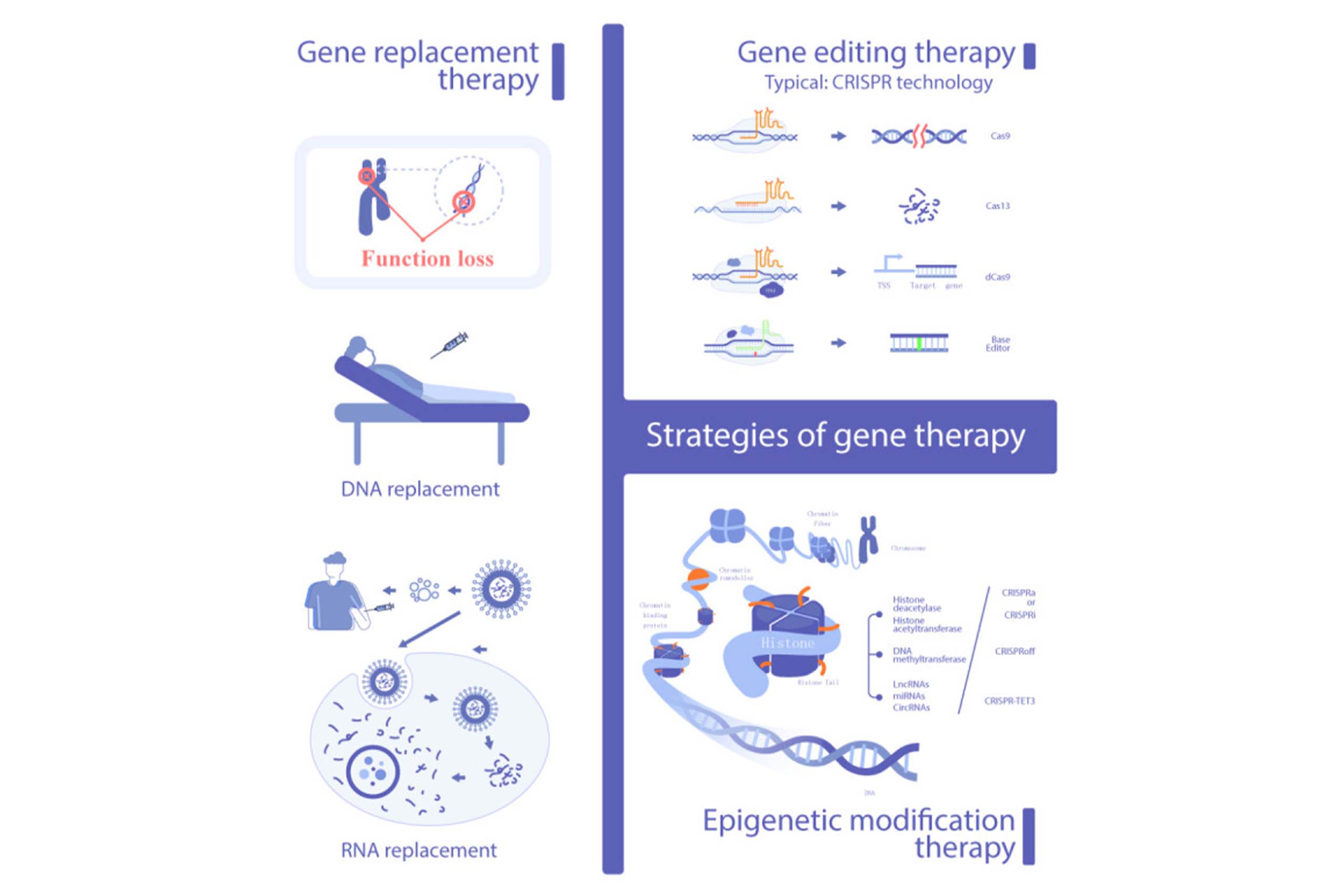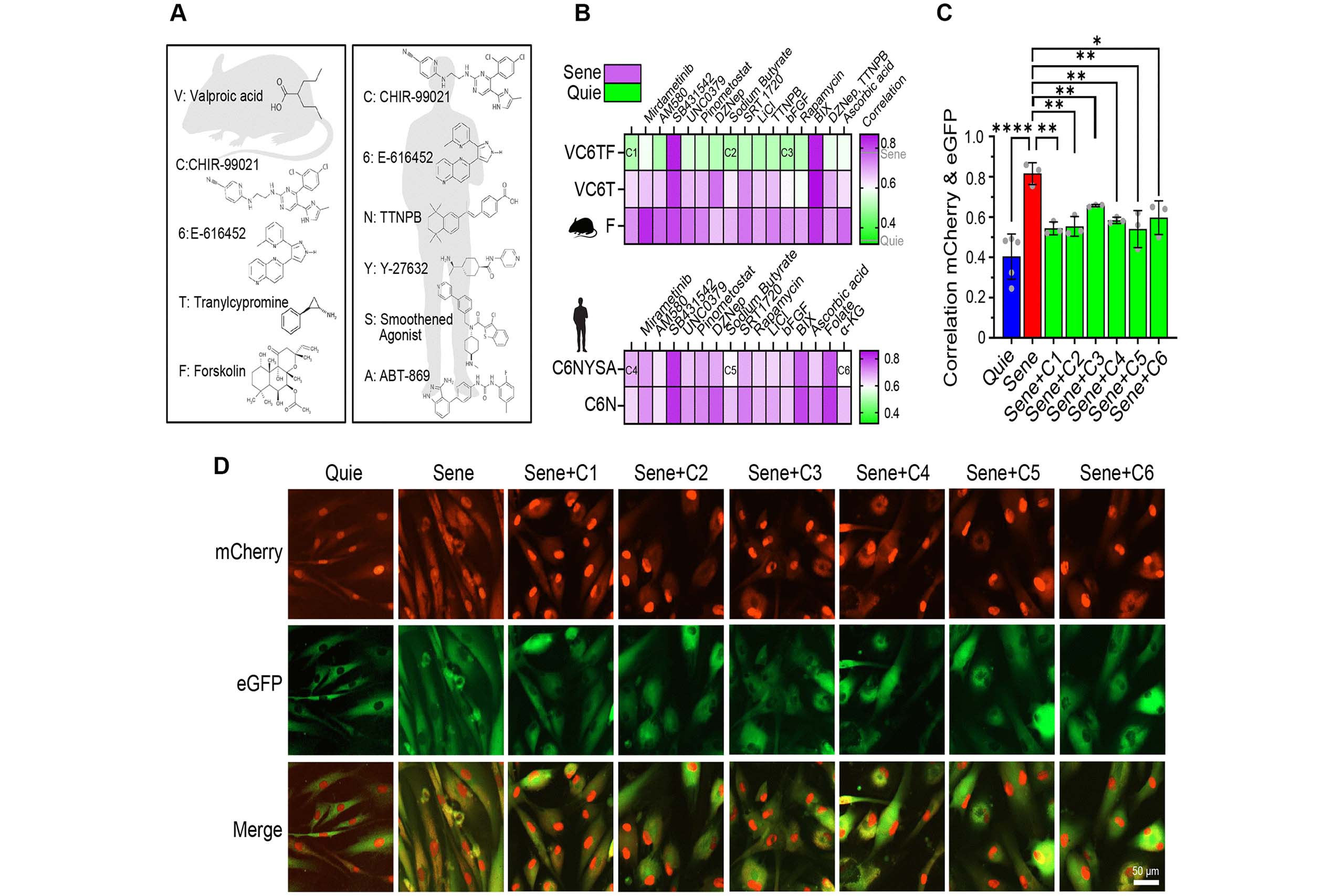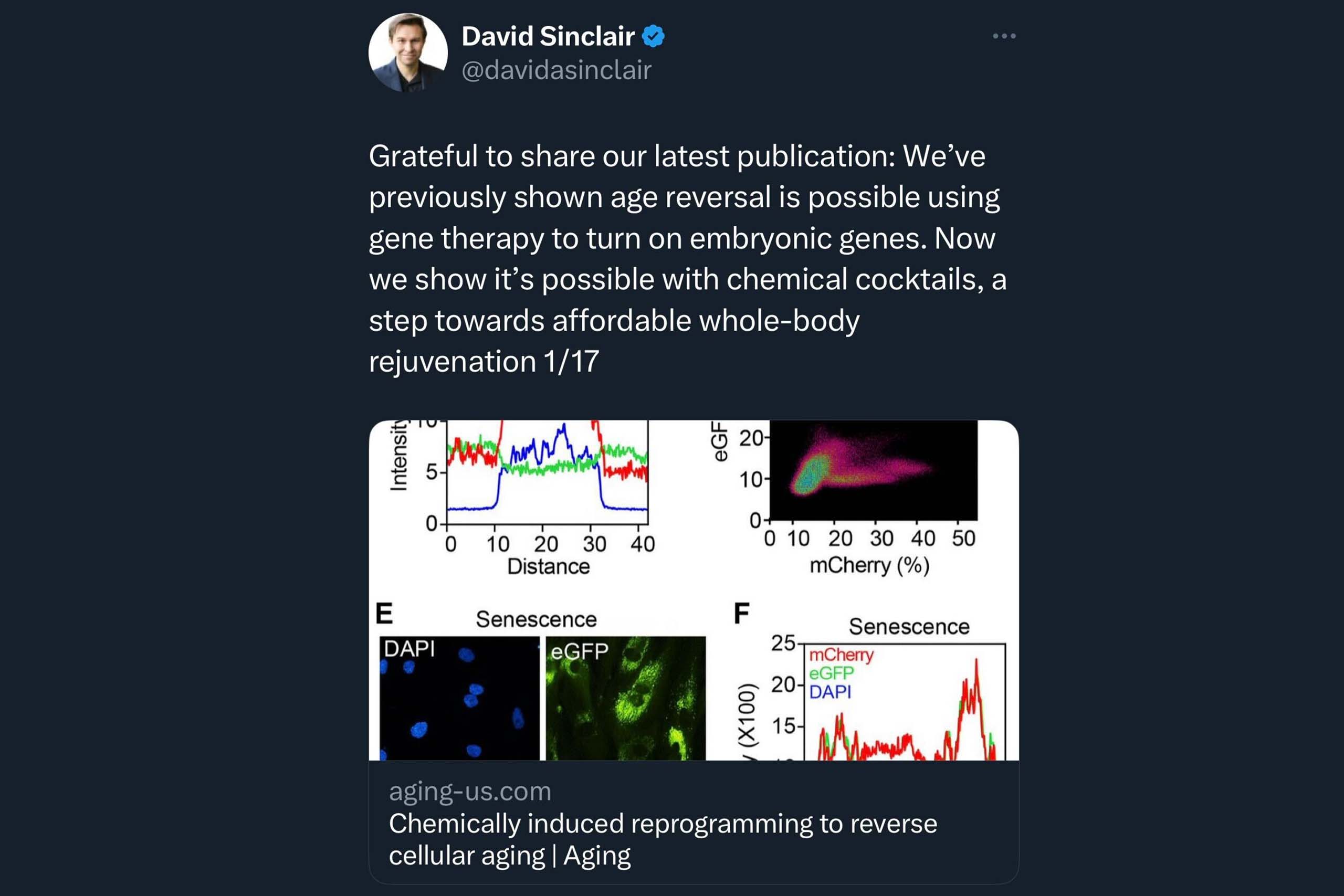Reverse Aging: How Chemical Breakthroughs Could Rewind Your Cells' Clock
Aging, the inevitable march of time that affects us all, has long been a subject of fascination and pursuit. But what if I told you that a recent groundbreaking study has brought us closer than ever to a solution? And this breakthrough comes in a single pill.
Harvard Medical School researchers have achieved something remarkable, opening up a new frontier in the battle against aging. Their findings have changed how we can reverse aging, offering hope for a healthier and more youthful life.
Research Shows Chemically Induced Cellular Reprogramming Can Unlock Whole-body Rejuvenation
Gene Therapies: The Norm for Age Reversal
For a long time, scientists have considered the loss of epigenetic information as a cause of mammalian aging. Thus, turning back the clock on aging was firmly tied to complex gene therapies. Strategies like gene replacement therapy, gene editing therapy, and epigenetic modification therapy have offered glimpses of hope.
These innovative techniques target genetic factors associated with aging, offering potential ways to rejuvenate cells and mitigate age-related chronic diseases. Yet, despite significant advancements, a comprehensive solution still needs to be discovered. Age-related ailments, often linked to multiple genes, still lack effective treatments.
The search for age reversal through gene therapy is still going strong and pushing the frontiers of medical knowledge. Still, the complex genetic influence network requires novel strategies for a comprehensive answer to the perplexing problem of aging.

Strategies of gene therapy for aging-related diseases. Source: Aging & Disease (A&D)
What Exactly is Chemically Induced Cellular Reprogramming?
This new study, published in the journal Aging on July 12, 2023, and led by Dr. David Sinclair, takes a different approach, introducing a chemical method to reprogram cells into a more youthful state. This decision is a significant departure from the norm, which is understandable as gene therapies often have various limitations.
The core of this breakthrough lies in Yamanaka factors, specific genes that were found to convert adult cells into what are known as induced pluripotent stem cells (iPSCs).
Because stem cells can differentiate into any cell, the body’s cells and tissues can replace dead cells or produce new ones as needed, including immune cells, in response to various conditions. Prof. Shinya Yamanaka successfully reverted differentiated cells to their initial pluripotent state (reprogramming) and produced iPSCs in 2006.
This discovery piqued scientists’ curiosity: Could it be possible to reverse aging at the cellular level without triggering uncontrolled growth that could lead to cancer?
Using this premise as a starting point, the Harvard researchers embarked on a mission to discover a way to rejuvenate human cells by screening for specific molecules.
Chemical “Cocktails” Reverse Aging in Less Than a Week
As a result, researchers developed advanced methods to distinguish young cells from aged ones, including transcription-based aging clocks and a real-time nucleocytoplasmic compartmentalization assay (NCC, whose alteration is a hallmark of aging).
Their endeavor finally bore fruit when they identified six unique chemical cocktails that restored cells’ youthful characteristics and even reversed the age of cellular transcripts within 4 days. So what exactly are these “cocktails?”
Valproic acid (VPA), an anti-seizure medicine used for psychiatric problems, and a cancer drug with anti-aging properties are among the many components in this chemical cocktail. Of course, all the components must undergo extensive testing before being used on humans to ensure they won’t raise cancer risk by promoting uncontrolled cell growth.

Reprogramming small molecule cocktails restores NCC alterations in senescent cells—Source: Aging-US
Previously, it was only possible to reverse aging through gene therapy. Now, cellular reprogramming is offering favorable results in mice’s optic nerve, brain tissue, kidney, and muscle tissues, leading to restored vision and extended lifespans.
More recently, similar positive outcomes were observed in monkeys, offering a glimpse of what’s possible in human health.
How Crucial Are These Findings to the Science of Aging?
Researchers claim that their findings show that the biological age of cells exposed to the chemical cocktails was reversed by 3 years in just a few days, a feat that had only been shown to be possible in humans after more than a year of regenerative medicine.
This newfound discovery holds immense potential, presenting us with opportunities that have seemed like distant dreams. It opens more promising doors to regenerative medicine and the possibility of whole-body rejuvenation.
This research could transform how we address aging by harnessing the power of chemicals rather than relying solely on gene therapy. Not only might it lead to more accessible treatments, but it could also accelerate the pace of medical advancements.
Is a Single Pill the Answer to Longevity?
Dr. David Sinclair, the leading scientist on this project, summed it up succinctly: “Until recently, the best we could do was slow aging. These discoveries suggest we can now reverse aging.” Well, he’s right! Aging research is shifting, and the potential is vast.
The Harvard team envisions a future where age-related diseases are effectively treated, injuries are healed more efficiently, and the concept of turning back the clock on aging becomes a reality. Until then, whole-body rejuvenation will no longer be impossible.
Imagine a world where a single pill could hold the power to reverse aging, where restored vision and relief from various age-related ailments are not just dreams but achievable goals. The path toward realizing this goal has begun, and with further advancement, a new age in healthcare may be just around the corner.
So, the answer is very likely to be YES.
References
Yamanaka S et al. (2006). Induction of Pluripotent Stem Cells from Mouse Embryonic and Adult Fibroblast Cultures by Defined Factors.
Yu J et al. (2023). Gene Therapy Strategies Targeting Aging-Related Diseases.
Sinclair D et al. (2023). Chemically Induced Reprogramming to Reverse Aging.
Schedule Your Free Consultation
Yunique Medical provides FUNCTIONAL MEDICINE for optimized health and performance. We offer customized, scientifically advanced treatments to create a new state of human thriving. Why be ordinary when you can be optimal?
HUMAN 2.0 begins here!
Contact us to schedule your FREE consultation at one of our three locations in Florida – Ocala, Fruitland Park (The Villages), and Daytona.
UP NEXT:


